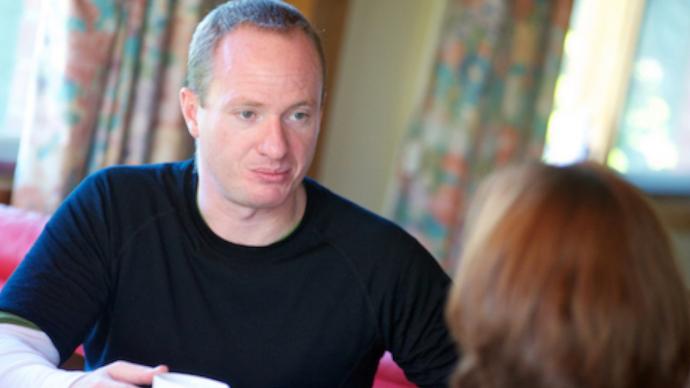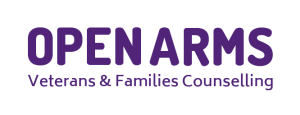Self-harm and suicide
If you think about self-harm and suicide, you should seek professional support. If you or someone you know is in immediate danger, call 000.
About self-harm
Self-harm can be used to deal with painful feelings, as a way to punish ourselves or others, or even to ask for help.
Self-harm is usually defined as someone deliberately hurting themselves without wanting to die. It is sometimes called 'deliberate self-injury' or 'non-suicidal self-injury'.
If you or a friend are self-harming, it’s important that you talk to someone about what you’re going through before consequences escalate. There are a number of services listed below available to help.
Thinking about suicide
If your life (or someone else’s life) is in immediate danger – call 000 or go to your nearest hospital emergency department.
It's common for people to think about suicide and feel that life isn’t worth living. Most people don’t act on these thoughts and are able to get over feeling this way, sometimes with professional support.
If you or someone you know has felt like this at some point, remember:
- Many people have felt the same way at some stage – that they can’t go on – but they’ve come through it and lived great lives. There is light at the end of the tunnel and there is hope for a better future.
- Just because you’re having suicidal thoughts today doesn’t mean you have to act on them. Make a 'contract' with yourself to wait 24 hours, or a few days, or a week. You’ve already put those thoughts aside by reading this, so you can put it off a bit longer.
- You don’t have to go through this alone. Talk to someone you trust – a friend, your GP, a counsellor or psychiatrist, a minister, teacher, or anyone you trust to keep you safe. You can create a list of people to call when you need support.
- Contact Open Arms – Veterans & Families Counselling for free, confidential support 24/7: 1800 011 046. Open Arms is a dedicated counselling service for veterans and their families. Many Open Arms counsellors are veterans and can help you with issues specifically related to military service.
- Contact a helpline:
- Lifeline on 13 11 14
- Suicide Call Back Service on 1300 659 467, or
- Men’s Line on 1300 789 978.
Reasons you might want to hurt yourself
There are many reasons why you might want to hurt yourself. It could be related to thoughts of suicide but it might also be to escape from distressing feelings, to cope with life stressors or to escape pain.
Sometimes, people who try to hurt themselves have just lost someone or something they cared about. Maybe a close friend or loved one passed away, or a relationship or career has come to an end. If this sounds like you, finding out more about grief might help.
Experiencing depression or anxiety can make you think about self harm.
People are also much more likely to try to hurt or kill themselves when they’re under the influence of drugs or alcohol.
People who have been through frightening or traumatic events, such as childhood abuse to serious accidents or military deployments, may suffer from posttraumatic stress which can also increase the risk of self-harm or suicide.
Sometimes it's the stresses and strains of life – like financial problems, physical pain, unemployment – that build up to the point where it seems life isn't worth living.
Remember that all of these problems can be solved – some not easily, and maybe not perfectly, but there are solutions and there are people who can help (like financial counsellors job agencies and health professionals).
Things will get better.
Recognise the triggers
- What sets off these feelings that made you think about self-harm or suicide?
- What activities, times, places, people and thoughts make you want to hurt yourself? And when do you NOT feel like it?
Understanding more about the things that trigger thoughts of self-harm can help you deal with those situations, or avoid them altogether.
Postpone it
When you feel the urge to hurt yourself, try to distract yourself for 15 minutes or so. The intense and immediate urge to self-harm passes may pass quickly. Postponing it through another activity may be all you need in the short term to get over thoughts of self harm.
Focus on other things like going for a walk, ringing a friend, reading a book, or having something to eat or drink. Choose things that take your mind off negative thoughts and keep you busy in a positive way.
Take action
Distract yourself from thoughts of self-harm or suicide
If you are thinking about harming yourself, get involved in a distracting activity and allow the urge to pass. You can choose from a range of activities in the Distraction tool.
It’s best if you choose these tools when you are feeling relatively well and have them handy if you feel the urge to harm yourself.
Manage your unpleasant feelings
When you feel the urge to hurt yourself, try using strategies like controlling your breathing, relaxation and helpful self-talk to manage the feelings that you are experiencing.
Even simple activities like controlled breathing can take your mind away from thoughts of self harm and get you through the immediate crisis.
Take action
Connect to your current surroundings and manage unpleasant feelings
Feeling overwhelmed by strong emotions can put you at risk of harming yourself.
The Guided Grounding tool helps you connect to your current surroundings when you're feeling overwhelmed.
The Managing Emotions tool helps you identify your emotions, regain your composure, think about your situation and decide on a helpful course of action.
When you’re starting out, practice using the tool/s when you're feeling calm. Once you’ve learned the strategies you can use them whenever you feel yourself becoming upset or overwhelmed.
The Managing Emotions tool is also available on the High Res app to use on the go. For guided grounding you can use the Keep Calm tool on the Operation Life app.
Build connections
Spending time with other people helps you feel better and reduces thoughts of harming yourself.
Use the Social Connections tool to identify the people in your life who can offer you support and the different kinds of support they can offer.
When you’re starting out, focus on strengthening relationships with people you trust most and can talk about personal things with. Over time, you can work on building a wider support network by reaching out to people that you don't see as often or have lost contact with.
The Social Connections tool is also available on the High Res app to use on the go.
You can also use the Personal Support Network on the Operation Life app to create a list of people to call when you need support.
If you don’t have people you can talk to easily, writing your feelings down can help you understand your emotions and stop distressing thoughts from going around and around in your head. Getting those thoughts on paper can also help you to come up with more helpful thoughts that will get you moving again.
Getting help
If you feel like hurting yourself, seriously consider getting professional help.
As a veteran - or the immediate family member of a veteran - you have access to a range of specialised counselling and support services. These are specifically geared to help veterans deal with the unique challenges of military life.
- Talk to your GP and ask for a referral to a psychologist or psychiatrist for an assessment. This will give you a better idea of what’s going on and how to deal with it.
- Free counselling support through Open Arms - Veterans and Families Counselling, or call Open Arms directly on 1800 011 046.
- DVA Non-Liability Health Care (NLHC) allows current and former ADF personnel, depending on their eligibility, to receive treatment for all of the following conditions any mental health condition. Learn more about eligibility at DVA.
There are many places to look for more information about self-harm and suicide. Good places to start are:
See also
-

Suicide awareness
The factors that can lead someone to suicide can be complex and often involve a mixture of causal and circumstantial risk factors. There are many factors in our lives that can help to protect us and others against suicide. -

Getting help
If you are worried about yourself or someone you care about, it can be hard to know what to do next. Help and support is available. For immediate help when life may be in danger, call 000. -

Audio series - 'Open Conversations'
Our new audio series presents stories of recovery from the veteran community, featuring people that have accessed support services to improve their lives, and the lives of those around them.





